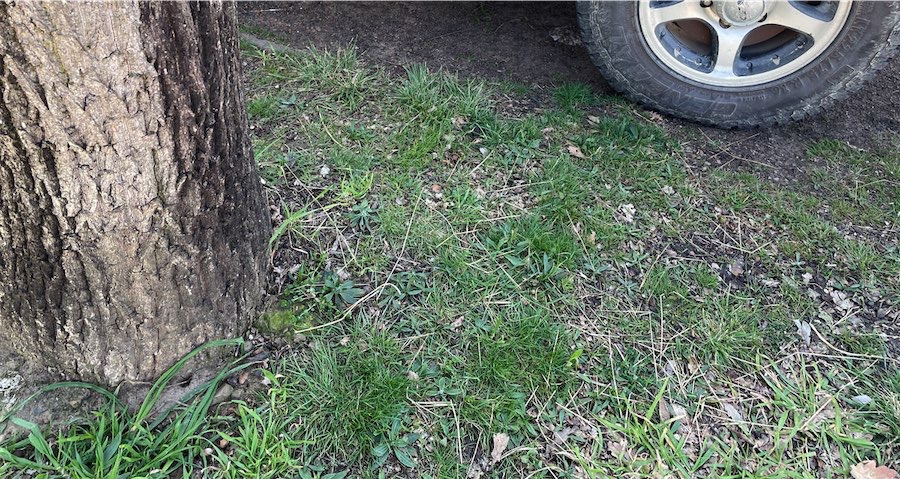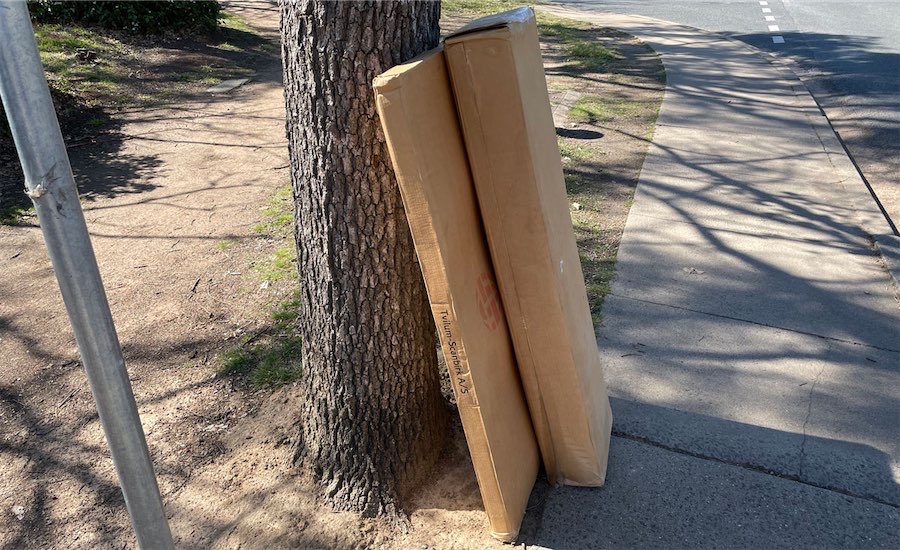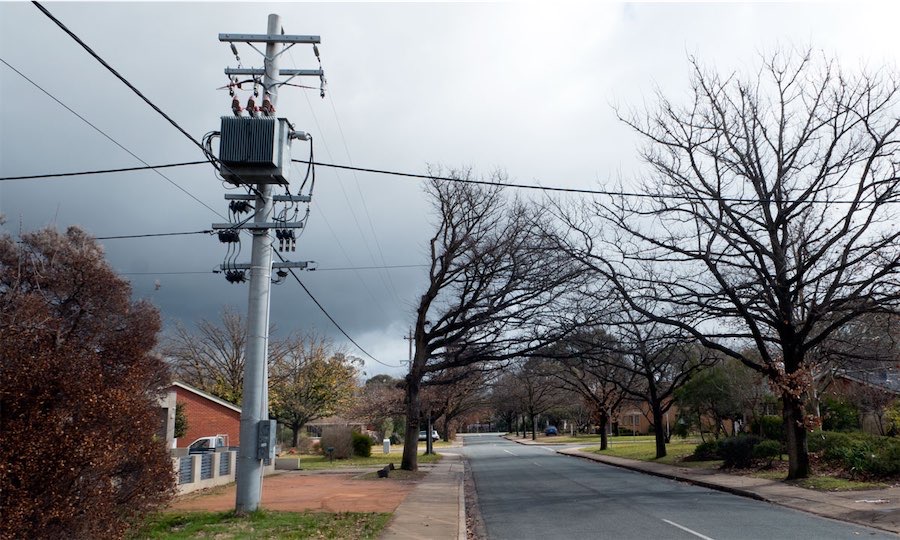“Canberra Matters” columnist PAUL COSTIGAN discovers there’s a lot to learn from lockdown walks…
THERE’S a section of Dickson, not far from the shopping centre, where stuff on the street highlights several urban issues. These are things he noticed while doing the lockdown walk.
 Trees and parking
Trees and parking
One shameful issue yet to be adequately addressed by the ACT government is that the city is losing trees. However, there are instances where residents cannot just blame “the government”. Their own actions could be impacting the street trees.

First a bit of history. In 1987 Kew Gardens in the UK suffered a major loss of trees due to an enormous storm. One 200-year-old tree that had previously been struggling was found to have risen out of the ground, but instead of falling over as did many others, this mighty oak settled back down.
To the surprise of the gardeners, the tree then flourished. Further study revealed that it was the effect of millions of feet of loving visitors that had compacted the ground around the tree leading to it being denied oxygen and water that it would normally be lapping up through its roots.
This incident pointed the way to modern tree management and lessons on how dangerous it is for tree roots to be compacted. De-compacting (disturbing the earth) should be a regular part of all tree maintenance.
People park regularly besides their street trees. This has to be doing damage. While there is no easy answer to the problem that households need cars and tradies need to park somewhere given that many suburban streets are narrow, these unresolved issues should not be leading to the damage being done to street trees. A good resident-engaged government would be working on a friendly and non-threatening program to resolve this.
 The Dickson Lounge Exchange
The Dickson Lounge Exchange
I’m not sure when this practice became a regular thing, people often place unwanted goods on their sidewalk. A friend’s son moved into an upmarket Sydney suburb and needed to get some furniture for his flat. It took a few drives around the suburb for most of what he needed to be picked up and most were quality finds.
This level of quality is not necessarily evident in some of the local pickings. Some, such as the lounge pictured, make you wonder whether reuse was the real motive or was this dumping simply making it someone else’s problem.
 The more successful exchange
The more successful exchange
The second lounge appeared about the same time but did not last long. Found a happy home apparently.
 Mystery items
Mystery items
I passed these packages one day recently, stopping only to get a quick photo while balancing the shopping. The next day it was gone. Was it a mystery prize for the curious? We will never know.
 That unplanned tree
That unplanned tree
This wattle has been at home on this corner for a while now. It was obviously not planned to be where it is. With the coming of spring, it has blossomed beautifully and looks very much part of the street. Will it be allowed to grow tall enough to be ruled as significant?
 The clash of power lines and trees
The clash of power lines and trees
There are many instances of the clash of infrastructure with street trees. Usually it is the trees that lose out.
Sometime in the past the decisions about power lines and what trees were to be planted along streets were made by various departmental silos that did not talk to each other.
Unfortunately, the city’s future is still undermined by having different agencies working within their own bureaucratic silos. Care to guess how many bureaucratic seminars are held talking about a “whole-of-government” approach to crucial urban matters.
Despite that, what happens in our suburbs demonstrates that any whole-of-government approach remains a worthy theory.
Given that the Chief Minister continues to talk about planning reform, a whole-of-government approach to design, landscape, green infrastructure, climate change, architecture, biodiversity and heritage would be a good place to start with any planning reform instead of the narrow-minded approach now taken by the Planning Directorate. Trees and biodiversity should be a priority for all of the government.
Who can be trusted?
In a world of spin and confusion, there’s never been a more important time to support independent journalism in Canberra.
If you trust our work online and want to enforce the power of independent voices, I invite you to make a small contribution.
Every dollar of support is invested back into our journalism to help keep citynews.com.au strong and free.
Thank you,
Ian Meikle, editor




Leave a Reply